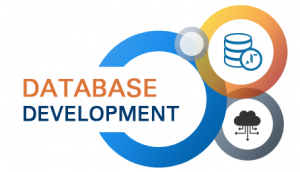 Finding a database solution to match the ever-changing data storage needs of the organization can prove to be tricky. Here’s a quick guide that can help in understanding the crucial role of a custom-designed database.
Finding a database solution to match the ever-changing data storage needs of the organization can prove to be tricky. Here’s a quick guide that can help in understanding the crucial role of a custom-designed database.
What is a database?
The database acts as a core for any given enterprise or web-based application. It stores application configuration, content, data, and works in combination with DBMS- database management system software (interface). The software helps users to create, update, manage, and retrieve information from the storage. It also makes sure the information remains consistently organized and ensures efficient execution of queries, elimination of data redundancy.
The database supports the interrelated and complex business processes, increases productivity, and reduces the need to keep redundant physical storage units connected to the network. It supports organizational decision making and business operations by ensuring data remains consistently available.
Databases consist of columns and rows in a series of tables that are best suited for data querying. Most systems use the programming language called SQL for querying as well as writing information.
Depending on how the company plans to use the stored data, engineers can recommend relational, object-oriented, distributed, NoSQL, MySQL, open source, cloud, multimodal, self-driving, document/JSON, or other tailor-made databases for financial as well as scientific functions.
Companies with limited resources can opt for database-as-a-Service (DBaaS) instead of on-premises options. However, the features offered by DBaaS are limited.
Why is database design required to be the area of focus?
The database’s design is a crucial component of any IT solution that supports and automates business processes.
Online Transactional Processing – OLTP and Decision Support System – DSS are the main types of designs for databases.
As the name suggests, Decision Support System based designs are best suitable to handle historical data, and of course, to work with business intelligence systems. Its design and way of indexing can handle constant queries as well as the demand for data to generate various reports. However, they are not designed to handle a continuous flow of information update requests.
Databases with Online Transactional Processing designs, on the other hand, are designed to work with line of business apps and can handle constant updates, store new records. But, their tables are not intended to manage a large number of continuous queries like systems with DSS designs.
How do vendors handle database development and deployment?
The first step involved in any software development project is consultation. Project details, including organizational needs, project viability, are discussed.
The next step involves project analysis and ways to execute the same. It can be planned as a long term, or a short term project, depending on the requirements, features, as well as timeframe available. The vendor would be able to offer a cost estimate and project contract terms in this stage after analyzing the specific requirements.
Then come the database software designing, development, and testing phases. As a part of stage four, engineers would offer a demo for the software to ensure it works as per the plan created during the second stage. During the demo phase, the client can request changes, tweaks to the vendor and get the system fine-tuned to work with the selected set of apps correctly.
Once ready, its demo version can be made available to the selected employees for training. During the final stage, after completing testing, the software is released to run in the production environment.
The same development and deployment procedures are followed by most of the vendors who offer Complex Database Services.
Crucial for IoT
IoT and Machine Learning are two technologies that can transform the way various industries work. Both require access to vast quantities of information regarding multiple business processes to make decisions. Thus, the importance of databases to support these business intelligence tools is on the rise. Forward-thinking organizations have already begun the integration of smart technology to make their firms scalable and agile when it comes to decision making. Self-driving databases play a crucial role in their functioning.
Need a Database System? SSI Can Help
Custom solutions help businesses to store, modify and analyze data for insights into various aspects at a later stage. As one of the leading custom database development service providers, Smart Sight Innovations can help organizations with cloud-based as well as on-premise solutions. The firm’s engineers are experienced in creating database strategy planning, architecture design and development, database maintenance and check, big data analytics, data mining, and reporting, etc.
The firm has developed a positive reputation due to its team that provides on-demand support for cross-platform technologies. It has more than a decade worth of experience in addressing crucial database software needs of its clients.
Handling sudden increase in data volume, ensuring data security, maintaining database infrastructure, and managing scalability are some of the challenges faced by database administrators. The Database Software We Deliver helps in managing these challenges and meeting specific application needs so that administrators can simultaneously focus on other tasks.














